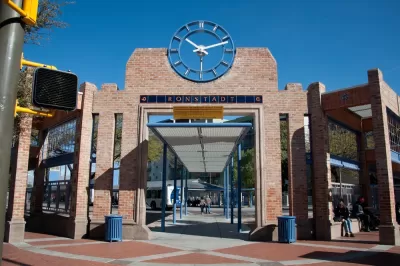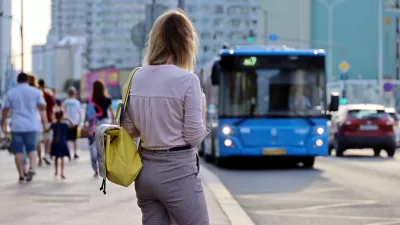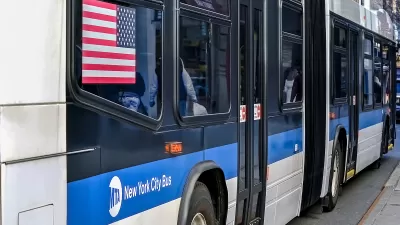After eliminating transit fares in 2020, the city of Tucson is exploring ways to fund a permanent program.

Tucson’s COVID-era fare-free transit program will remain in place until the end of the year, reports Diana Ramos for Tucson.com, after which the city will assess the program’s future. “Mayor Regina Romero and Vice Mayor Lane Santa Cruz sent a letter to City Manager Michael Ortega supporting his recommendation to keep fares free until the end of the year, but asked for a wide array of data over the past 10 years such as ridership data, safety and incident rates and staffing levels for bus drivers.”
The city is examining other fare-free transit programs to understand their strategies for funding and maintaining free transit. Elsewhere in Arizona, “The city of Tempe’s Orbit program provides a free neighborhood circulator shuttle, which was implemented in 2007.” The service operates year-round at 15-minute intervals and is funded by a dedicated transit tax and Arizona State University, which funds operations.
One group, however, is calling for the end of free fares in Tucson: bus drivers. “Tucson’s Teamster union released a letter May 1 asking for an end to the policy, which it blamed for a spike in crime on routes.” City officials have pushed back on this claim. “Verbal assaults between riders and drivers are low when compared to the average daily boarding, according to the city’s transit administrator, Rhett Crowninshield.”
Some related stories on the mixed success of fare-free transit programs:
FULL STORY: Fare-free transit will continue until the end of the year

Alabama: Trump Terminates Settlements for Black Communities Harmed By Raw Sewage
Trump deemed the landmark civil rights agreement “illegal DEI and environmental justice policy.”

Planetizen Federal Action Tracker
A weekly monitor of how Trump’s orders and actions are impacting planners and planning in America.

Why Should We Subsidize Public Transportation?
Many public transit agencies face financial stress due to rising costs, declining fare revenue, and declining subsidies. Transit advocates must provide a strong business case for increasing public transit funding.

Understanding Road Diets
An explainer from Momentum highlights the advantages of reducing vehicle lanes in favor of more bike, transit, and pedestrian infrastructure.

New California Law Regulates Warehouse Pollution
A new law tightens building and emissions regulations for large distribution warehouses to mitigate air pollution and traffic in surrounding communities.

Phoenix Announces Opening Date for Light Rail Extension
The South Central extension will connect South Phoenix to downtown and other major hubs starting on June 7.
Urban Design for Planners 1: Software Tools
This six-course series explores essential urban design concepts using open source software and equips planners with the tools they need to participate fully in the urban design process.
Planning for Universal Design
Learn the tools for implementing Universal Design in planning regulations.
Caltrans
Smith Gee Studio
Institute for Housing and Urban Development Studies (IHS)
City of Grandview
Harvard GSD Executive Education
Toledo-Lucas County Plan Commissions
Salt Lake City
NYU Wagner Graduate School of Public Service





























